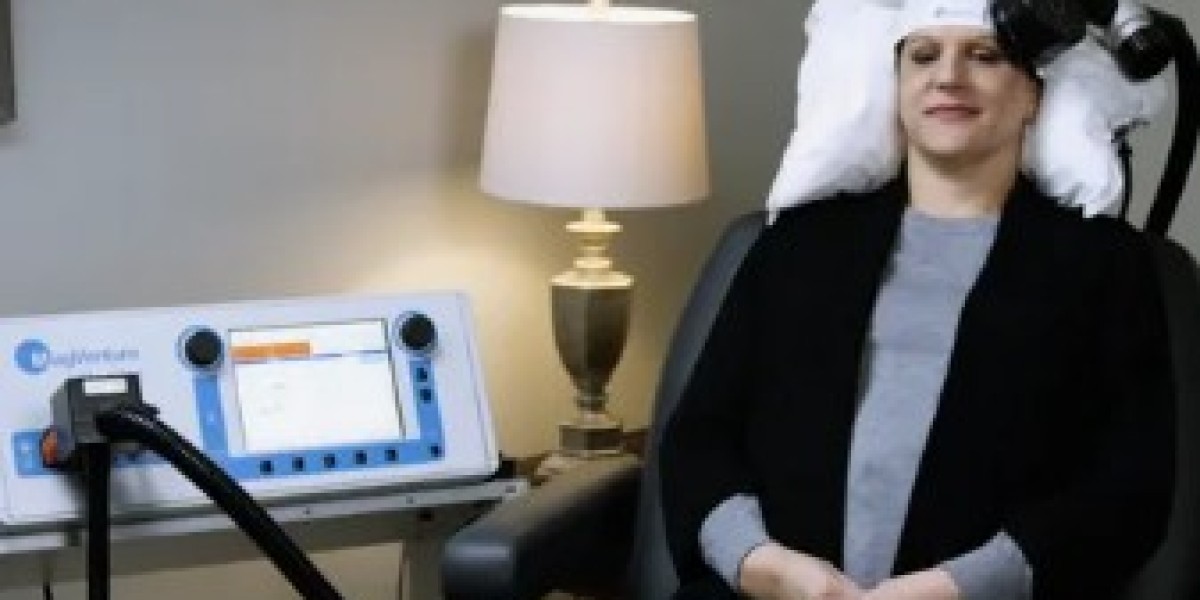Depression is a pervasive mental health condition that affects millions of people worldwide. While traditional treatments such as psychotherapy and medication can be highly effective for many, there is a growing population of individuals who continue to struggle with symptoms despite these approaches. For those seeking alternative and advanced treatments, TMS therapy for depression has emerged as a promising solution, offering hope and significant improvement in quality of life.
What Is TMS Therapy?
Transcranial Magnetic Stimulation (TMS) is a non-invasive, FDA-approved therapy designed to treat depression by stimulating specific areas of the brain using magnetic fields. Unlike electroconvulsive therapy (ECT), TMS does not require anesthesia and does not cause systemic side effects such as memory loss or cognitive impairment. Instead, it targets the brain’s prefrontal cortex, an area often underactive in individuals with depression, to regulate mood and improve neural activity.
The procedure involves placing an electromagnetic coil near the scalp, which generates magnetic pulses that penetrate the brain. These pulses trigger neural activation in key regions associated with mood regulation, helping to restore normal brain function and alleviate depressive symptoms. Each session typically lasts between 20 to 40 minutes, and patients remain awake and alert throughout the process, allowing them to resume daily activities immediately afterward.
How TMS Therapy Works for Depression
Depression is often linked to imbalances in neural circuits and chemical signaling within the brain. Traditional antidepressants aim to correct these imbalances chemically, but some individuals may not respond adequately to medication. TMS therapy addresses this challenge by directly influencing brain activity through targeted stimulation.
During TMS therapy, the magnetic pulses induce small electrical currents in the brain. This process enhances the communication between neurons and strengthens synaptic connections in mood-regulating circuits. Over time, repeated sessions can lead to lasting neuroplastic changes, helping the brain function more effectively and reducing depressive symptoms.
Clinical studies have shown that TMS therapy can significantly improve mood, energy, and overall functioning in individuals with treatment-resistant depression. Patients often report enhanced clarity of thought, better concentration, and increased motivation, contributing to improved daily life and overall well-being.
Who Can Benefit from TMS Therapy?
TMS therapy is particularly beneficial for individuals who have not found sufficient relief through conventional treatments. This includes patients who:
- Have tried multiple antidepressant medications without success
- Experience side effects that make traditional medications intolerable
- Prefer non-invasive treatments over more aggressive procedures like ECT
- Wish to complement ongoing therapy and medication for enhanced results
It is important to note that TMS therapy is not suitable for everyone. Individuals with certain neurological conditions, metal implants in the head, or seizure disorders may not be candidates for this treatment. A comprehensive evaluation by a qualified mental health professional is essential to determine if TMS therapy is an appropriate option.
Benefits of TMS Therapy for Depression
The growing popularity of TMS therapy is driven by its remarkable benefits and effectiveness. Some of the key advantages include:
- Non-Invasive and Safe: TMS therapy does not require surgery, anesthesia, or hospitalization. Patients remain awake and alert, making the treatment convenient and low-risk.
- Minimal Side Effects: Unlike antidepressants that can cause weight gain, sexual dysfunction, or gastrointestinal issues, TMS therapy typically results in mild side effects such as scalp discomfort or headaches, which usually resolve quickly.
- Effective for Treatment-Resistant Depression: Research indicates that up to 60% of patients with treatment-resistant depression experience a significant reduction in symptoms after a full course of TMS therapy.
- Improved Cognitive Function: Many patients report enhanced focus, memory, and mental clarity as depressive symptoms decrease.
- Long-Lasting Relief: While multiple sessions are required for maximum benefit, many patients enjoy sustained improvement even after completing the treatment course.
What to Expect During a TMS Therapy Session
A typical TMS therapy program involves a series of sessions, often five days a week for four to six weeks. Each session begins with a mapping procedure, where the clinician identifies the precise location in the prefrontal cortex for stimulation. This ensures that the magnetic pulses target the brain region most associated with depression.
Once the location is determined, the patient sits comfortably in a chair while the electromagnetic coil is positioned on the scalp. The device then delivers a series of magnetic pulses, creating a tapping sensation on the head. Patients may hear clicking sounds during the procedure, which is completely normal. Most individuals describe the experience as mildly uncomfortable but not painful.
Sessions are typically scheduled for 20 to 40 minutes, and patients can immediately return to their regular activities afterward. Over the course of treatment, clinicians monitor progress and adjust stimulation parameters to maximize results.
Combining TMS Therapy with Other Treatments
TMS therapy for depression can be used as a standalone treatment or in combination with other interventions. Many patients continue psychotherapy, medication, or lifestyle modifications alongside TMS therapy for comprehensive care. Cognitive-behavioral therapy (CBT), mindfulness practices, and exercise can complement the effects of TMS, promoting long-term recovery and resilience.
Additionally, some patients benefit from maintenance TMS sessions after completing the initial treatment course. These sessions help sustain improvements and prevent relapse, particularly for individuals with recurrent or chronic depression.
Success Rates and Research Findings
Clinical research and real-world data demonstrate that TMS therapy can produce meaningful improvements for those struggling with depression. According to multiple studies:
- Response rates (significant symptom reduction) range from 50% to 60% in patients with treatment-resistant depression.
- Remission rates (complete symptom relief) range from 30% to 40%, offering life-changing outcomes for many.
- TMS therapy has also shown positive effects for anxiety, obsessive-compulsive disorder (OCD), and post-traumatic stress disorder (PTSD), indicating broader applications for mental health care.
The evidence suggests that TMS therapy is a safe, effective, and non-invasive alternative for individuals who have exhausted conventional options.
Taking the First Step
If you or a loved one is struggling with depression that has not responded to traditional treatments, exploring TMS therapy for depression may be a transformative step. The first step involves scheduling a consultation with a licensed mental health professional trained in TMS. During this evaluation, the clinician will assess medical history, mental health status, and treatment goals to determine if TMS is appropriate.
For many patients, TMS therapy offers renewed hope, improved mood, and a pathway to a more fulfilling life. With minimal side effects, targeted treatment, and proven effectiveness, TMS represents a significant advancement in the field of mental health care.
Conclusion
Depression can feel overwhelming, but modern treatment options like TMS therapy provide real solutions for those who need them most. By directly stimulating brain regions involved in mood regulation, TMS therapy offers a non-invasive, safe, and highly effective approach to overcoming treatment-resistant depression. Patients often experience significant relief, improved cognitive function, and enhanced quality of life.
As awareness of TMS therapy continues to grow, more individuals struggling with depression can access this cutting-edge treatment. If you are searching for a proven, non-invasive alternative to traditional depression management, TMS therapy could be the key to reclaiming your life and finding lasting mental wellness.








